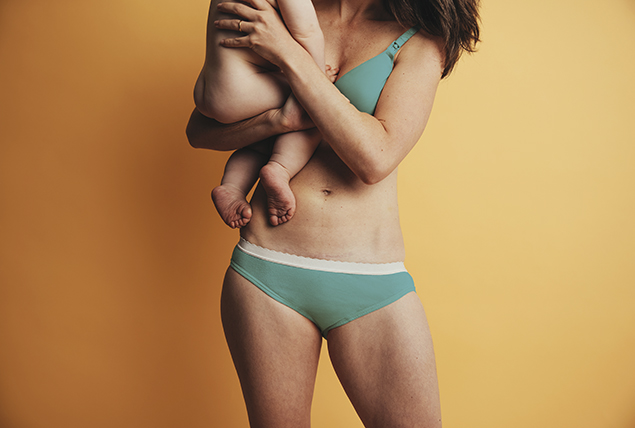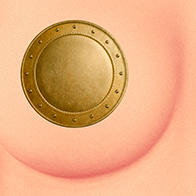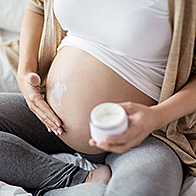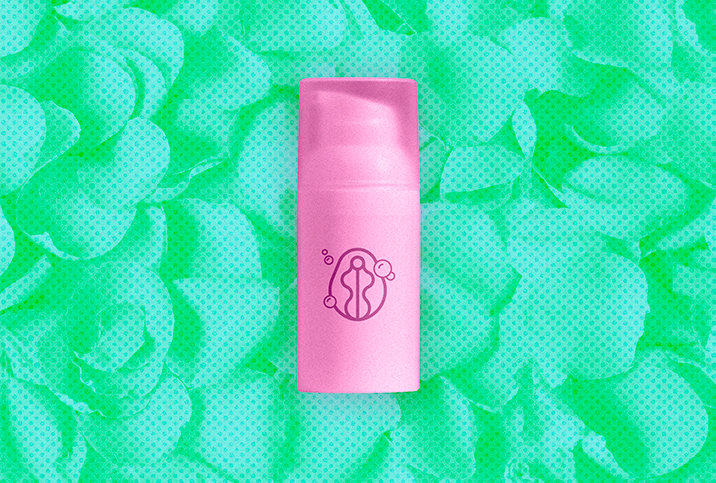What's Happened to My Skin After Having a Baby?

Breakouts, dry skin, pigmentation and other postpartum skincare issues affect many women. What is going on with your skin after having a baby, and can you do anything to improve it?
Is it normal to have postpartum skincare problems?
When I had my first baby, I expected to spend the first few weeks basking in a glorious postpartum glow with perfectly dewy skin as I cuddled my newborn. The reality of early parenting was very different. My skin reverted to teenage levels of chaos, complete with breakouts and acne.
This knocked my confidence, and with a new baby to look after, I lacked the time and energy to figure out what was going on and how to help. This problem isn't unique.
"It is not uncommon [to have bad skin] and is quite prominent in a high percentage of postpartum women," said dermatologist Vladyslava Doktor, D.O., the owner of Skin Center Boston.
Why does my skin have all these problems postpartum?
"There are many hormonal fluctuations that take place after pregnancy, and until they normalize, the skin can go through many changes," said Nava Greenfield, M.D., a board-certified dermatologist at Schweiger Dermatology Group in New York City. "This will look different for everyone, and it's not always predictable."
For some people, these fluctuating hormones could mean oily skin and breakouts. New mothers are often unprepared for the changes in their faces and body after labor and delivery. But, it's also completely common—and it won't last forever.
"Postpartum acne can also become a prominent sign of hormonal changes that take place," Doktor said. "There is an enormous fluctuation in estrogen and progesterone post-pregnancy. Progesterone is the main hormone influencing the appearance of hormonal acne post-pregnancy."
"Pregnancy, birth and postpartum are the ride of a lifetime in terms of hormonal changes and the potential for a skin imbalance," said Anna Cave-Bigley, the founder of Sabi, a holistic skincare brand that aims to help women struggling with changes in their hormones.
Even if you get through pregnancy and birth comfortably, chances are good that breastfeeding, recovery, a spotty sleep schedule, and an eat-when-you-can diet may take a toll on your skin and hair.
"Postpartum women experience what is known as 'the big drop,' where our hormones plummet to menopausal levels in a matter of weeks after birth," Cave-Bigley said, which can affect how you are feeling emotionally and have some serious repercussions for your skin.
What are common postpartum skin problems?
During pregnancy, you may have developed skin conditions such as melasma, aka the mask of pregnancy, where patches of pigmentation, or dark patches, develop on your face. Although these dark spots typically fade after delivery, they may take longer to fade if you choose to breastfeed or pump.
Some women get stretch marks and varicose veins thanks to thinner, weaker skin that is more likely to tear and stretch due to higher levels of progesterone.
You might experience postpartum dry skin, sensitivity, eczema or dermatitis. Stress hormones and sleep disturbances can also contribute to skin dullness. In other words, you may not always feel your best.
How can I help my postpartum skin feel better?
First up, don't panic. Like many things associated with becoming a parent, it's all a temporary phase. Your skin and hormonal levels will return to normal. The exact timeline will vary.
Your hormones may start to return to their typical levels around three to six months after birth. It can take longer, though, if you are breastfeeding or pumping.
In the meantime, keeping your skin clean and hydrated will give you the best outcome, Greenfield said. As to which skincare products to use, consider what you want to achieve and the current condition of your skin.
"There are limited active ingredients you can use when breastfeeding, so that will play into the skincare decisions as well," Greenfield said.
Yes, in a way, you almost need to babyproof your skincare regimen.
If you have acne, wash your face to decrease oil accumulation triggered by hormones, Doktor said.
"Use exfoliants—added bonus, they're breastfeeding safe—such as salicylic acid or glycolic acid to remove dead skin cells and sebum, [which are] oils that are sitting on the surface of the skin and are feeding the bacteria causing acne," Doktor added.
For dryness, try gentle cleansers made for sensitive skin that won't strip natural moisture. Make sure you are moisturizing regularly. Remember sunscreen, especially if you have melasma. UV radiation can worsen pigmentation issues, so limit sun exposure and always wear a broad-spectrum SPF.
To help support your skin from the inside out, prioritize eating well, drinking enough water, looking after yourself and getting as much sleep as possible. Though that last one can be challenging with a baby. The old saying "Sleep when the baby sleeps" still holds true—and could help you not only feel better, but it could also help the appearance of your skin.
"A well-balanced diet with lots of fresh fruits and vegetables and limited processed foods will always be a good idea for your skin at any point in your life—including postpartum," Greenfield said.
The bottom line
It is possible to help manage your hormones with things like skincare and diet, Doktor said, but it is important to follow the mantra of "all in moderation." If you need more support, check with a doctor or a dermatologist for advice or medical treatment to help tackle your skincare issues.




















